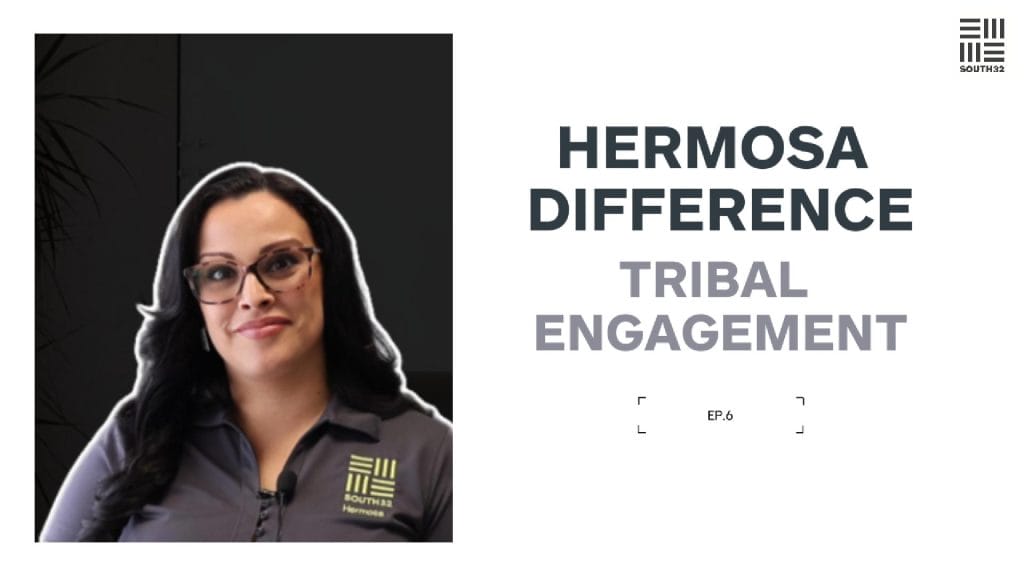
“Tribes are here, they’ve always been here. It’s important that we respect the past and present, and the difference in beliefs and cultural practices. We must continue to allow the voices of Tribes to be heard, and to openly discuss the impact of their shared experiences.”
– Stephanie Moreno
Tribal Affairs Specialist
Southern Arizona is a culturally rich region with a history that’s intertwined with the Indigenous populations who’ve called this region home for centuries. Historically, mining projects on and around sacred lands have forged ahead with development while failing to foster meaningful and collaborative relationships with the Native populations whose opinions matter.
At the Hermosa project, we wanted to bring Indigenous voices to the table early, and build transparent, trusting relationships with our local Tribes. Four years before beginning any official construction or regulatory processes, we made initial informal outreach to our twelve neighboring Tribal communities.
Common practice has been for mine development projects to initiate outreach to tribes through formal regulatory consultations, which is too late in the process to really address issues or shape the approach to project development. While new mines have made progress prioritizing engagement, primary methods of outreach remain formal regulatory processes. Effective engagement needs a personal touch, and that’s why we put informal outreach first. We wanted to build an interpersonal foundation on which open conversation could flourish and trust could be built.
Early communication isn’t the only way we’ve tried to bring our local indigenous neighbors into the fold.
Prior to any development, our teams began conducting cultural resource surveys on over 30,000 acres of surrounding land. We continue to carry out these regular surveys on our claims in the accompaniment of tribal monitors and share our results to ensure we can preserve the integrity of the cultural and natural resources that surround us. In addition to sharing this information collected from our surveys, we also host tribal members for regular Hermosa site tours so we can be fully transparent on how we’re using the land and working to protect it.
Most critical to all these methods of engagement is simple and direct communication. We hold open discussions with tribes in order to build deeper relationships than those based on formal exchanges of information. This has allowed us to become acutely aware of culturally significant lands and better our understanding of tribe’s historic connections to the region.
Our Tribal Affairs team takes to heart our obligation to respect those who’ve lived here for generations and our direct and continuous outreach is our commitment to ensuring just that.
Tribes are here, they’ve always been here. It’s important that we respect the past and present, and the difference in beliefs and cultural practices. We must continue to allow the voices of Tribes to be heard, and to openly discuss the impact of their shared experiences.
It’s been our goal from the start to protect the interests of our tribal neighbors, while driving positive change in the broader community, and helping to support all those in our region. Social license to operate by our local indigenous tribes is crucial, and we’re determined to include them at every stage in our development process.
Our team strives to maintain a cooperative relationship, creating shared value, while keeping the utmost respect for local indigenous communities now and into the future. That’s the Hermosa difference.